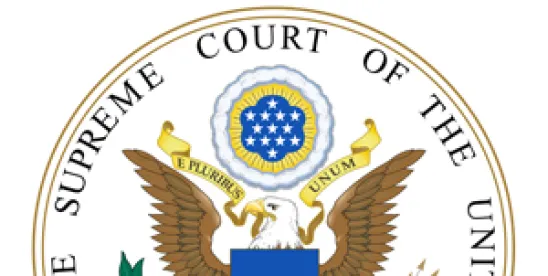For once here’s a story you DIDN’T read about first on TCPAWorld.com–that honor goes to consumerprivacyworld.
The Supreme Court granted cert. yesterday in a FCRA suit to determine: “Whether either Article III or Rule 23 permits a damages class action where the vast majority of the class suffered no actual injury, let alone an injury anything like what the class representative suffered.”
The question was framed by Transunion and is probably a bit suggestive– unlikely the Supreme Court will decide something squishy and subjective like whether a class representative’s injury is “anything like” the injury suffered by class members– but the core principle is critical.
I have long argued that the Article III standing principles set forth in Spokeo should be the death of TCPA class actions. Indeed I laid out this argument THE DAY Spokeo was decided. Read all about it on my former firm’s blog (they never give me any attribution but I wrote this thing).
The reason is simple: not every TCPA violation causes actual harm. So not every TCPA violation will afford Article III standing. And since ONLY individuals who have standing can recover at trial, a TCPA class action will never be certifiable– determining which TCPA violations caused actual harm to individual class members will be impossible in 99% of cases.
As sometimes happens, I was way WAY ahead of the courts on this one. For quite a while courts rejected these principles–first finding that TCPA violations DO always cause harm (no way) and then finding that cases can be certified even if unnamed class members lacked standing (shouldn’t happen.)
I was finally (sort of) proven right when the Eleventh Circuit decided Cordoba v. DIRECTV, LLC, No. 18-12077, 2019 U.S. App. LEXIS 34146 (11th Cir. Nov. 15, 2019)
There, the Court recognized that courts MUST take the standing of unnamed class members into account when determining whether a case is certifiable under Rule 23. While the Court stopped short of holding that TCPA cases are never certfiable on that basis, the basic legal doctrines I set forth way back in 2016 were all present and accounted for. Now it was just a matter of finishing the job.
That’s where the Supreme Court’s grant of cert in Transunion v. Ramirez comes in. Here, finally, SCOTUS appears set to give guidance on the intersection between standing and Rule 23. Specifically– can a court certify a case where unnamed class members lack standing.
While a bright line rule may ultimately prove evasive here–again the question presented is so squishy it cries out for an ambiguous response–it seems clear that THIS Supreme Court is unlikely to hold that classes containing uninjured members can proceed to trial on a certified basis. And that is of HUGE importance in TCPA cases.
Consider the common scenario of a TCPA class action related to unwanted text messages. Some individuals in the class may have suffered actual injury–they fell off a ladder or crashed a car when disturbed by the text–ok. But the vast majority of class members may not have suffered any injury whatsoever (at least in those jurisdictions that don’t presuppose injury from a statutory violation–which is, itself, a plain misapplication of Spokeo.) So how can a class of text message recipients ever be certified following a SCOTUS ruling that district courts must assess the standing of unnamed class members at the rule 23 stage?
At a minimum a new and difficult evidentiary burden will now rest on the plaintiff’s shoulders at the Rule 23 stage–introducing evidence that standing can be proven across the class on a common basis. This might be possible in some cases–might— but will require copious expert testimony and data analysis. Probably some survey work. Maybe some class member affidavits. Tricky stuff.
More likely, many plaintiff’s lawyers will resort to filing state court class actions where–the argument goes–Article III principles won’t prevent certification. But I am not so sure. It seems pretty clear to *this guy* that a TCPA plaintiff lacking standing to sue in federal court also lacks prudential standing to sue in state court– how can a person be within the reach of a federal statute if he/she isn’t allowed to sue in federal court?
That last battle is still yet to be played out. And like so many times in the past I am sure I will be wrong at the district court level until I am ultimately proven right at the appellate or supreme court level a few years from now.
But that’s a bragging session for another day.
For today, it is enough that TCPAWorld may finally see the end of class litigation–at least in federal court–once the Supreme Court rules in Ramirez.
Stay prescient TCPAWorld!




 />i
/>i

